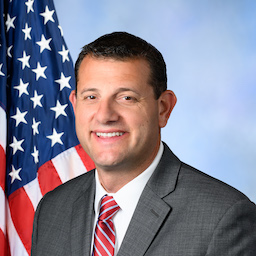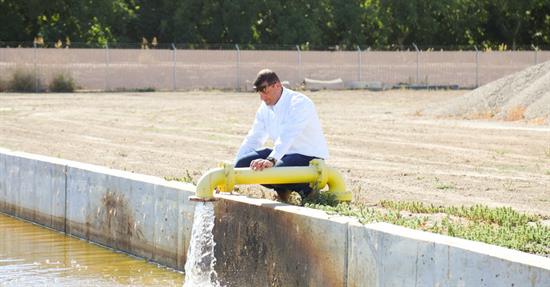- Home
- About
-
Services
- Art Competition
- Community Project Funding Map
- Congressional App Contest
- Congressional Certificate
- Event Request
- Flag Request
- Grants
- Grant Letters of Support
- Help with a Federal Agency
- Inauguration
- Internships
- Kids Page
- Meeting Request
- Service Academy Nominations
- Tour Requests
- Vietnam Veteran Commemoration
- Government Shutdown FAQ
- Issues
- Media
- Contact

In the News
Stop playing politics with waterBakersfield Californian Op-Ed
Washington,
August 7, 2022
Tags:
Water
Water is the lifeblood of the Central Valley. With less than 1 percent of our nation’s farmland, the Central Valley supplies a quarter of our nation’s food and the majority of our nation’s fruits, nuts and vegetables. Our well-deserved reputation as America’s breadbasket comes from the help of nature and a whole lot of hard work and skill from our farmers, ranchers and producers.
Read the Op-Ed in the Bakersfield Californian But without water, we can’t grow our nation’s food at all. As a result of California’s ongoing severe drought, insufficient storage of water from wet years, and unnecessary burdensome overregulation, communities throughout the Central Valley are running out of water for our daily use in homes, businesses, and agricultural production. Farmers have been left with no other choice but to fallow their fields and dry out valuable orchards due to access to little or no water. Hundreds of thousands of acres of produce will be unable to be planted again this year. With food prices continuing to rise across the country, the inability for our Valley farmers to grow food will hit wallets of families already struggling with record-breaking inflation. We can’t make it rain, and we can’t produce water out of thin air. But, we can ensure our communities are resilient with preventative action, like constructing more storage to capture water for use during severe droughts like the one we are experiencing. We must work with the water we already have and apply commonsense solutions to make this water available to our rural communities and farmers instead of sending it to the ocean. Central Valley farmlands depend on water contracted through the Central Valley Project and State Water Project and delivered largely by way of canals. After dealing with years of drought and inadequate water storage, farmers have had to turn to pumping groundwater to protect their crops and towns have been forced to pump groundwater to meet their needs. As a result of prolonged groundwater pumping, these communities have experienced land subsidence at the expense of critical water infrastructure. In the past decade and a half, land in the Valley has sunk eleven and a half feet, contributing to significant damage to the Friant-Kern Canal, Delta Mendota Canal, and California Aqueduct. Damage caused by land subsidence has significantly reduced the carrying capacity of these canals, which means communities are compelled to pump ground water to get what they need. We find ourselves in a dangerous situation that threatens critical infrastructure, local economies, and even national security. That’s why, I worked with Republicans and Democrats to get the Water Infrastructure Improvements for the Nation (WIIN) Act signed into law. This bipartisan bill increased operational flexibility for the CVP and SWP and authorized hundreds of millions of dollars for important infrastructure projects to improve the water system. The WIIN Act was critical in ensuring families in rural communities and our farms in the Central Valley have access to clean, reliable water. We made great progress because of this law, but the authorities under the WIIN Act expired in 2021. In an effort to continue addressing water issues for the Central Valley, I introduced the RENEW WIIN Act in February 2021. This legislation would be a simple extension of the storage and operations provisions of the WIIN Act and authorization of funds for critical water storage projects. Instead of coming to the table to pass this bill, which has a history of bipartisan support, the Democratic majority chose to force through a bill supposedly related to drought and wildfire. This messaging bill would do nothing for the Central Valley. This bill’s name is misleading and would not provide any assistance to our rural communities doing everything possible to survive these drought conditions. My efforts to amend this bill to include the RENEW WIIN Act were rejected by the Democratic majority. If House Democrats were serious about passing legislation to address our water scarcity issues, the RENEW WIIN Act would have been included in this bill. Passing the RENEW WIIN Act would provide real relief for our agricultural producers, rural communities, and everyone feeling the impacts of this drought. We need to stop playing politics with a resource that the Central Valley is so reliant on. |

